Technology

7 min
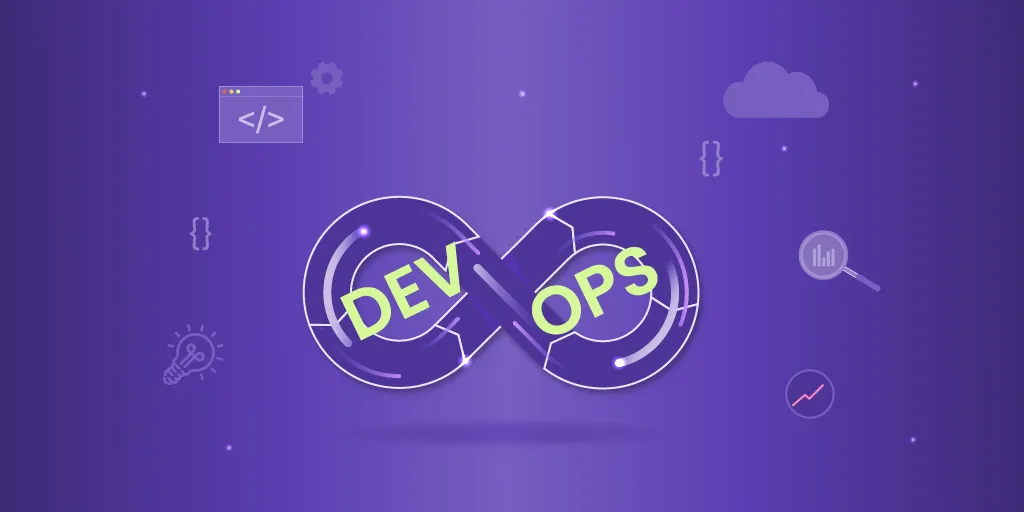
Learn about the latest DevOps trends shaping the industry in 2025 and beyond with our blog post. Discover how microservices architecture, serverless computing, low-code applications, Kubernetes and GitOps, DevSecOps, AI and ML, and Infrastructure as Code (IaC) are transforming the software development industry. Partnering with a DevOps services company can help you implement these trends successfully, so you can stay ahead of the competition and reap the benefits of these game-changing DevOps solutions.

By Dhruv Joshi
16 Nov, 2022
In the past few years, we have seen businesses successfully implement DevOps into their work systems with the help of a DevOps services company. DevOps has many benefits; the key to success is implementing the latest and right DevOps solution at the right time. So, this blog post will take you through the DevOps trends shaping the industry in 2024 and beyond.
Microservices architecture is trendy and an alternative to traditional architecture in the IT industry. We expect that this trend will continue. Microservices Architecture is a method, or we can say, the pattern of managing computers into partitions that we can scale on demand. The next evolution of SOA (service-oriented architecture) builds an app on connected services.
Here, the benefit is that if one service fails, it is easy to find, and the whole app will not fail. Microservice Architecture is trending and will stay forever; it's a decent idea to prepare for implementation using Azure DevOps services.
Serverless computing saves massive capital and operational costs because of serverless infrastructure. It's one of the best DevOps solutions where enterprises save huge funds. Serverless architecture is the next trend.
Many DevOps teams are applying modular components to provide a pipeline perspective. By converting these modular components to serverless architecture, organizations can reduce some of the tasks associated with pipeline architecture and concentrate on product development and deployment.
Serverless computing smooths out DevOps operations, including Azure DevOps services and software development, deployment, testing, and maintenance in one place. Also, serverless computing reduces developers' workload by managing server maintenance. Serverless computing is the next trend, and it is a chance to get ahead with DevOps services companies.
Many businesses now use low-code or no-code development to deliver applications quickly to keep up with the demand for new features and applications. It's also one of the best DevOps solutions with game-changing abilities. It increases developer agility and gives the company a competitive edge in the fast-moving, complicated software business.
With visual interface integration, low-code apps enable non-technical citizen developers to participate in software development. Using low-code platforms and technologies that allow drag-and-drop features and other extensions, developers, DevOps engineers, and DevOps services companies are poised to play a significant role in this movement and end users.
On the operations side, Kubernetes is an open-source container orchestration platform that is becoming popular. In 2024 and beyond, Kubernetes will become more prevalent in the software development industry. It will make it simpler for developers to launch a local Kubernetes cluster on their computers. Infrastructure-as-code (IaC) scanning for Kubernetes security is also anticipated to take center stage.
The Kubernetes-related infrastructure trend known as GitOps enables programmers and IT managers to manage clusters using Git and create compelling, secure apps without configuration errors. Rapid software development, Mannual testing, and deployment will be possible since it automates the release of incremental changes.
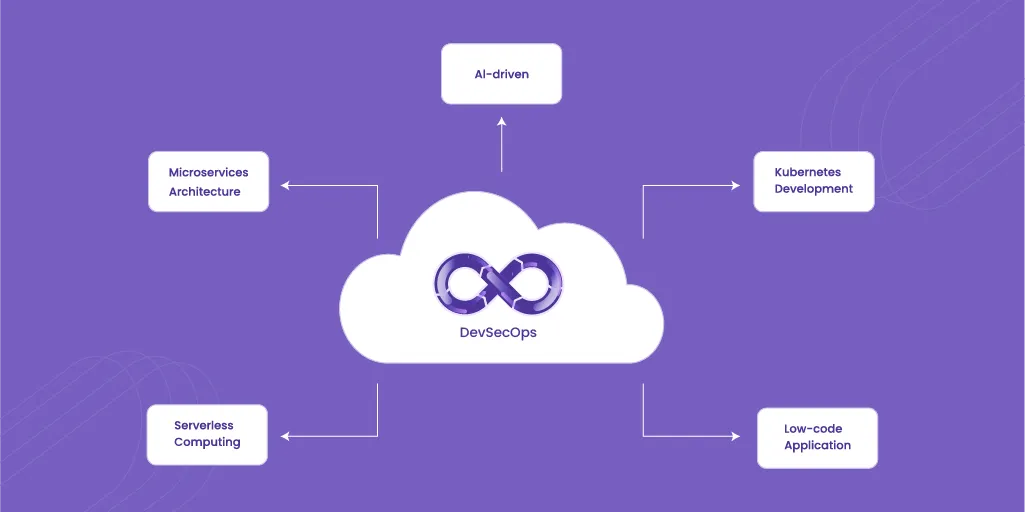
Many large businesses are getting into DevOps solutions for security integrations and automation. Future predictions predict that the shift from DevOps to DevSecOps will accelerate even further. A prophecy states that this the market will grow at a CAGR of 31.2% from 2017 to 2023, reaching $5.9 billion.
More businesses will start integrating security controllers for app security in the software development cycle. In 2024 and onwards, CI/CD pipelines will be easily integrated with tools and frameworks, and the use of testing tools will increase. DevSecOps allows developers to continuously track, monitor, and fix security flaws throughout the various phases of development while enhancing the delivery speed and quality.
Artificial Intelligence and Machine Learning are now in the market and transforming businesses rapidly. After 2022, it's expected that AI/ML will further streamline SDLC. Through intelligent automation, improved feedback, and careful management, it helps DevOps teams improve performance.
As the industry develops, cutting-edge analytical techniques like predictive analytics are becoming more and more crucial. AI can enable a proactive analysis of the DevOps pipeline to find issues and suggest potential fixes. Integrating AI and ML into your business workflow makes deep learning, data mining, statistics, and modeling possible. In short, it's beneficial in every direction; thus, it's best to reach out to a DevOps services company and start getting the advantages of AI and ML.
Infrastructure as code (IaC) is much more advanced. Instead of using configuration tools, Infrastructure as Code automates resource management and provisioning. A key benefit of IaC is: it allows for rapid implementation and standardization of infrastructure, cloud-native deployment, traceability, consistency, and more.
IaC enables teams to create reliable, consistent systems that are simple to copy in development, testing, and production contexts. So, IaC can be the next step for success; a DevOps solutions provider can help to make this a more straightforward implementation.
The establishment of a better cloud-centric platform to enable cloud-based work processes and applications has been paved by numerous enterprises. Businesses should launch a broad implementation of the Cloud Management Platform (CMP) as soon as practicable.
Businesses can establish a deeper foothold in their cloud operations by adopting and modifying CMP for DevOps. They can manage and use their cloud computing resources more effectively as a result. Adoption of CMP has benefits, including enhanced cloud security, greater resource utilization, and effective risk reduction.
One of the DevOps industry trends, FinOps, provides the best solutions to optimize cloud spending to raise a business's profit. FinOps makes cloud expenditures financially accountable by balancing speed, teams, cost, and quality.
SRE is an approach to IT operations with software engineering where you use tools to operate a system, solve problems, and automate processes. What does DevOps do here? Not DevOps, but SRE helps to make scalable and highly reliable software systems for DevOps solutions.
DevOps solutions aim to do the same tasks with minimal input and make procedures that provide a feedback loop between the development and operating teams. With this approach, you can get faster releases and an increase in deployments. Therefore, 90% of enterprises have implemented DevOps solutions. Also, predictive analysis is used for DevOps to find and solve problems. It is a huge benefit! You can reach out to a DevOps services company to get it done.
Trends continuously change! Keeping up with trends is the key to success. To achieve this success, you will need expertise in this domain and an expert hand to manage it!
Do you want to transform your business with DevOps trends? Here your search ends. We are the best DevOps services company that also provides the best solutions with Azure DevOps services.
Most Popular Web App Frameworks for Building Scalable Apps
By Sannidhya Sharma
5 min read
Web App Development Languages - Which Stack Fits Your Business Needs
By Dhruv Joshi
5 min read
How to Develop a Web App: Step-by-Step Guide from Idea to Launch
By Sannidhya Sharma
5 min read
Top 11 Must-Have Features of a Custom Web Application in 2026
By Dhruv Joshi
5 min read
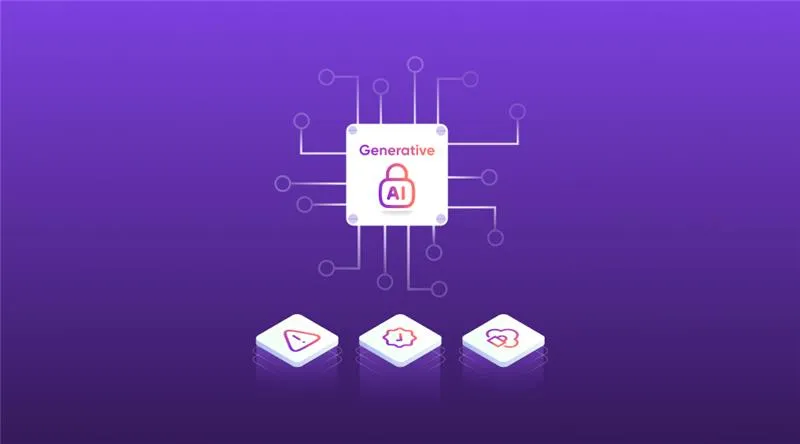
Technology

7 min
Generative AI is moving fast into enterprises, from banks to hospitals to government agencies. Adoption is rapid, but security planning lags. Unlike traditional systems, these models can be exploited through prompt injection, poisoned data, or manipulated to leak sensitive information. They are also misused for phishing, deepfakes, and malicious code.

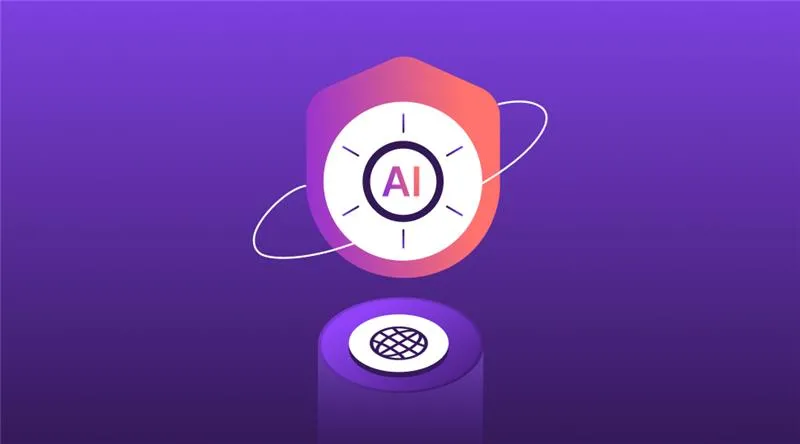
Technology

7 min
AI-powered Web Application Firewalls (WAFs) go beyond static rules by using machine learning, anomaly detection, and predictive analysis to block zero-day threats, reduce false positives, and protect APIs at scale. Unlike traditional WAFs, they self-learn, adapt in real time, and cut operational costs while improving compliance and trust.

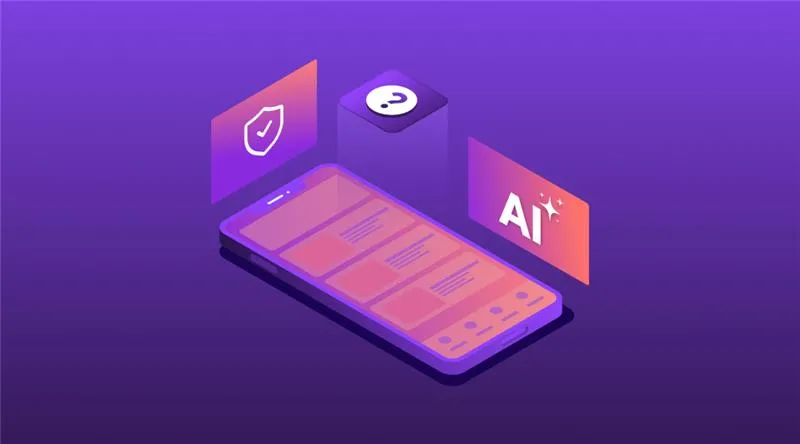
Technology

5 min
AI is redefining mobile app security by transforming how threats are detected, tested, and prevented. From continuous monitoring and fraud detection to compliance with regulations, AI ensures apps remain resilient against modern risks. This means safer apps, protected users, and stronger businesses. Investing in AI-driven security today builds trust, drives growth, and secures long-term competitive advantage.

Feeling lost!! Book a slot and get answers to all your industry-relevant doubts